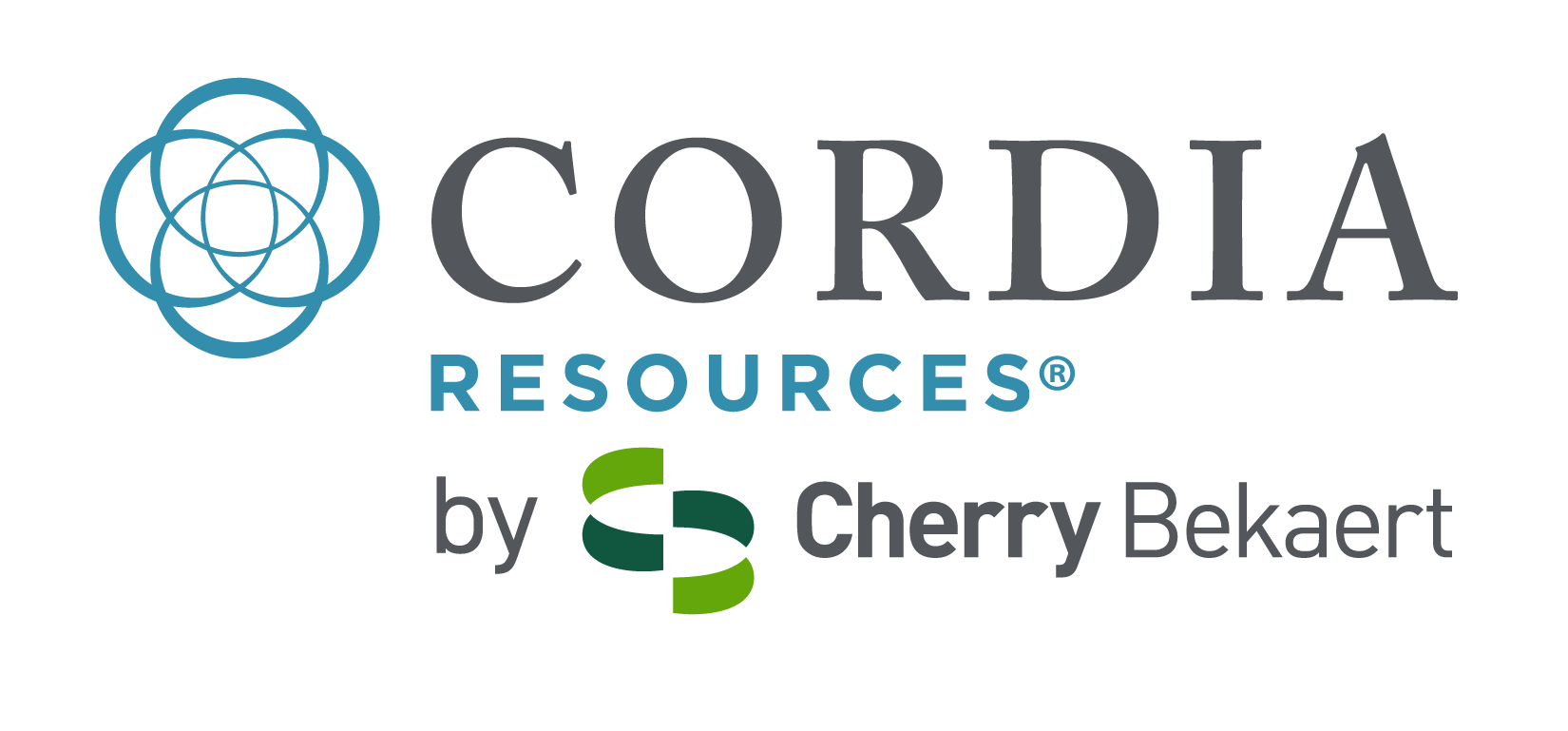.jpeg?width=673&name=AdobeStock_99929222%20(1).jpeg)
The events of 2020 had lasting effects on businesses, particularly for human resources departments and the professionals that work in them. From disrupting the global workplace to increased emphasis on social justice to managing changes in legislative and compliance issues, HR professionals were challenged in significant ways. But it wasn’t all negative. In fact, HR leaders embraced these events as opportunities to reimagine all facets of their business operations and drive initiatives forward through creative, value-added solutions and, in doing so, became more prominent and influential leaders within their companies.
As part of the Human Resources Leadership Series, Cordia Resources and Human Capital Strategic Consulting hosted a webinar, featuring three HR leaders who shared their top goals and initiatives for the year ahead.
Below are some key takeaways from the remarks of Amy Benbarka, Chief HR Officer at Applied Memetics (AM), LLC, Sharifa Gomez, Director of People and Culture at Epigen Technology, and Laura Giangiuli, SVP & Chief Human Resources Officer at CALIBRE Systems, Inc.
Managing Change in a Remote Work Environment
Change management remains a significant priority for 2021. When the eight-week shutdown began, no one anticipated we’d be facing a 12+ month recovery process, filled with extended work-from-home scenarios and continual change, which can be difficult for employees. Now, companies are addressing questions about workplace reentry, such as What does it mean to return to the office?, Do we return to exactly how it was?, and How do we reinforce and strengthen company culture in a fully-remote or hybrid environment? Successful change management will be essential over the next 18 months.
Recruit Talent from a Larger Applicant Pool
Thoughtful and intentional recruiting and hiring is another HR priority this year. One of the positive outcomes of the pandemic is that companies can now recruit from a much larger talent pool, no longer constrained by physical proximity to an office. When HR professionals expand recruiting efforts to include wider geographic locations, they may also improve the diversity of talent considered, which can really enhance a company’s culture.
Support Diversity, Equity & Inclusion in the Workplace
Each of the panelists’ companies have taken a deeper look at diversity, equity and inclusion (DEI) this past year and, as a result, have made more concerted efforts for 2021 and beyond. In the past, most HR departments simply let DEI happen organically; however, 2020 events illuminated that this approach didn’t necessarily achieve the best results. Corporate America has had an awakening, which has created new opportunities to more fully support DEI within organizations. Results within our panelists’ companies included the creation of employee-led resource groups to help amplify diverse voices, identify areas of improvements and lead company change. Efforts also convened focus groups to review recruiting and hiring practices, company philosophy, policies and procedures, executive and board composition, and nearly every aspect of the business to find opportunities to do better, be more intentional and more inclusive.
Rethink Employee Engagement
The pandemic caused HR teams to rethink employee engagement in a remote environment. Smaller organizations initiated one-on-one conversations to make sure employees receive the support they need to cope with stressful times. Larger organizations implemented virtual office hours to help employees address issues and stay connected. These smaller group conversations often provide rich insight from employees and give HR staff the chance to remind employees about available benefits, such as wellness programs and EAP. Some HR leaders publish their cell phone numbers and encourage employees to call when needed. Panelists noted that, in a remote work environment, a strong onboarding process is essential to set employees up for success and connect them with colleagues they haven’t met in person. Finally, HR leaders are prioritizing feedback and performance management, examining how the company administers feedback and researching best practices for both remote and hybrid work environments.
Drive Decisions with Data
HR leaders are relying on more data and data analysis to have educated conversations with company leaders and drive decisions. Ask yourself these important questions: Where do we want to go and why?, How can we use data to help us get there? and What does the data mean? Panelists recommended looking into existing business intelligence tools—certain HR software have free predictive analytics—or other technical resources your organization has access to in order to leverage existing information with a minimal burden placed on your (already stretched) team.
Here to Help You Manage HR in 2021
The disruption of COVID-19 has challenged human resources professionals in many ways, but it has also sparked creativity and innovation as it relates recruiting, engagement, DEI, and more. But there’s lots more to do. If your organization needs assistance with recruiting HR, talent acquisition or other operational professionals, guidance on remote onboarding, or other HR support, contact Cordia Resources today.



